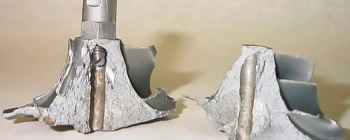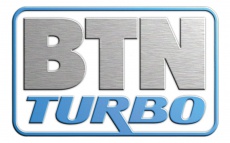
Overspeeding turbos can cause engine failure
Why does overspeeding damage turbos? Turbochargers can operate at over 6,000 revs per second (360,000 rpm), with exhaust gases around 800°C. Each turbo is designed and manufactured to rotate at the correct speed for its application. Overspeeding is when the turbo rotates faster than its operational limits causing it to fail by damaging the turbine or compressor wheels and bearings.
Overspeeding can overboost the engine, resulting in serious damage to the internal components and potentially complete engine failure.
What causes overspeeding?
• A restriction in the air intake filter or pipework, or a split or detached air hose, allowing incorrect amounts of air into the turbo.
• A ‘chipped’ or ‘overfuelled’ engine that isn’t to standard specification.
• Tampering with the wastegate.
• Worn injectors.
• Loss of signal to the SREA (Simple Rotary Electronic Actuator) for the wastegate or VNT control.
• Fitting the incorrect turbo.
To help prevent turbo failure caused by overspeeding
• Check there are no restrictions or leaks in the air intake pipes.
• Ensure the wastegate or VNT linkage is operating freely.
• Check the electronic sensors and ECU are operating correctly.
When you need to replace a turbo, don't risk it with non-OE. BTN Turbo supplies either brand new OE or OE manufacturer’s remanufactured turbos. So insist on a BTN-supplied 100% OE turbo from your motor factor.


 Click here to open the navigation menu
Click here to open the navigation menu